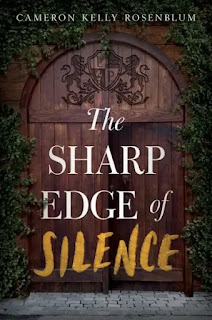The contrast of Charlotte's and Max's dreams coming true against the nightmare of Quinn's descent to madness creates a stark narrative in the first half of the story, which otherwise largely follows the typical pattern of the boarding school subgenre of poorly supervised teenagers. Charlotte has issues with her distant boyfriend, who she suspects of cheating on her. Max, flattered by the perks of his new social status tentatively flexes his power by getting the nerve up to date his crush. The crew team has initial success and starts planning pranks against a rival school. Meanwhile, Quinn steals a gun and plots murder against her assailant.
But in the second half, the narrative comes apart. Max is exposed to a secret society that the boys have formed to promote a rape culture and finds himself unable to stand up to it. Charlotte questions whom her jealousy actually serves. Quinn finds her voice and speaks out. And at this point, the book takes another unusual step by bringing in the adults to help out and the children become (slightly) less unsupervised. The story itself largely abandons its original trajectory as many of the important subplots (Quinn's homicidal plans, winning a big crew race, getting into college, and striking back at school rivals) simply are dropped and overshadowed by the bigger question of toxic cultures.
As far as that main theme is concerned, if the novel had simply been an indictment on toxic masculinity, it wouldn't be terribly original. What is interesting is the focus on the young women finding their voice. Whether it is Quinn learning to stop seeing herself as a victim, Charlotte refusing to excuse her ex-boyfriend's behavior, or Max's ex-girlfriend Alex standing up to well-meaning but largely inept Max, this is more about the important role that women can play in protecting themselves.


No comments:
Post a Comment